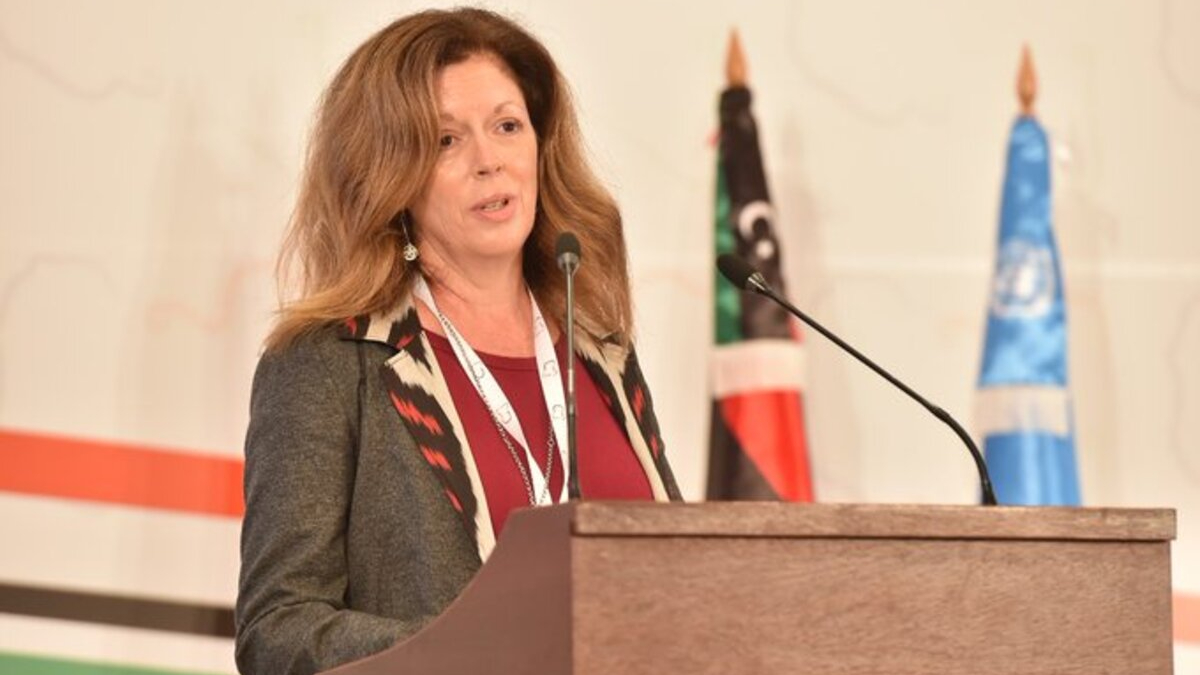The second round of peace talks between rival factions in Libya began virtually on Monday, November 13. The talks referred to as Libyan Political Dialogue Forum (LPDF) were formally inaugurated by the UN acting envoy and the head of its mission in Libya, Stephanie Williams.
The second round of Libyan Political Dialogue Forum (LPDF) commences today via a virtual platform and chaired by Acting Special Representative of the UN Secretary-General Stephanie Williams. #LPDF #LibyaFirst pic.twitter.com/CG9FgZRcmm
— UNSMIL (@UNSMILibya) November 23, 2020
The mandate of the second round of talks is to finalize the “selection criteria of the unified executive authorities for the period preceding the elections” scheduled in December next year, United Nations Support Mission in Libya (UNSMIL) said in the statement on Monday.
The peace talks in Libya started after all rivals factions signed a permanent ceasefire in October. The first round of talks was held between November 9 and 15 in Tunisia. The talks were inconclusive as there was no decision on the interim authority for peaceful transition in the country. However, both parties agreed to hold presidential and parliamentary elections on December 24, 2021 and constituted a legal committee to decide on the procedure for the elections.
They agreed to resume the production of oil in the country with joint security provided to the country’s oil fields.
The participants in the first round of talks also agreed on the scope of power and responsibilities of the interim authority and decided that the presidential council would be composed of three members, representing each of Libya’s three regions, and all decisions taken will be unanimous.
The three geographical and cultural regions in Libya are Tripolitania, Cyrenaica and Fezzan or what is generally referred to as West, East and South. There are 75 members in the LPDF with representatives of all the factions currently involved in the war in Libya.
Meanwhile, responding to some pressing hurdles in front of the continuation of the talks, Stephanie Williams assured the members of the LPDF of tough action against the attempts to intimidate the representatives through social media posts. She also informed that the reports of bribery during the selection of representatives in the LPDF are being investigated by a UN panel of experts.
In a parallel but related development, around 90 members of the Libyan parliament representing different regions are meeting at Tangiers in Morocco to discuss the end of the split in the national parliament and to hold a general session of the parliament in Sirte or Ghadames. The election to the Libyan parliament was last held in 2014. However, most of its members shifted from the capital Tripoli to the eastern city of Tobruk under the leadership of Aguila Saleh Issa after the coup attempt the same year and have been supporting Khalifa Haftar against the internationally recognized Government of National Accords.
1/3 UNSMIL is encouraged by the large consultative session of the House of Representatives that will begin today in Tangiers and is being hosted by the Kingdom of Morocco. pic.twitter.com/6Sn5rCwYmN
— UNSMIL (@UNSMILibya) November 24, 2020
The war in the oil rich north-African country has been ongoing since the NATO led invasion of the country in 2011 which overthrew long serving president Muammar Gaddafi. Subsequent attempts by the UN to resolve the conflict and bring peace have failed and the government supported by it is restricted to the capital Tripoli. A larger territory is controlled by Khalifa Haftar’s forces and southern territories are controlled by several smaller tribes.





